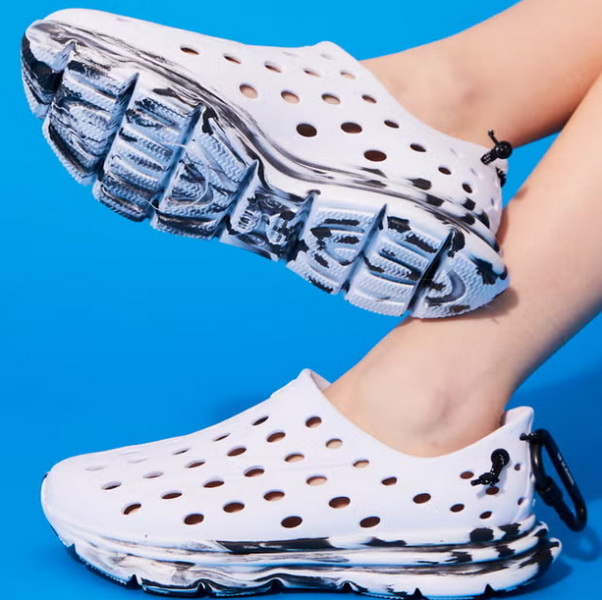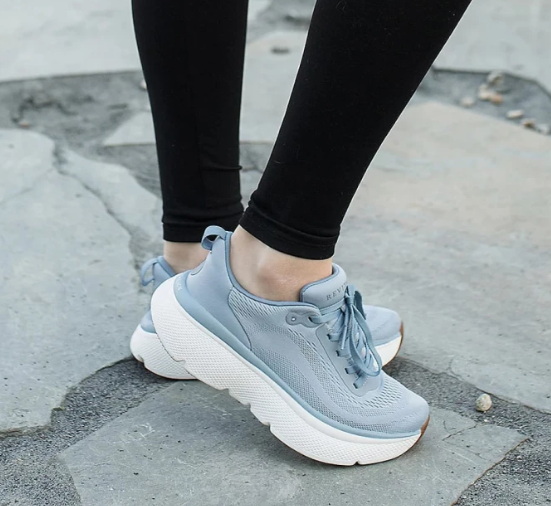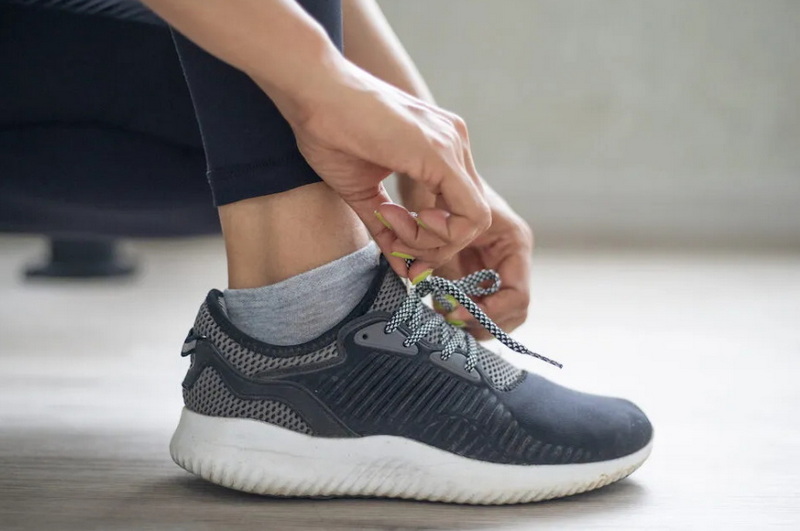Content Menu
● Understanding Orthopedic Shoes
>> The Importance of Foot Health
● Key Features to Look For
>> Understanding Different Foot Types
● Top Recommendations for Orthopedic Shoes
>> Best Overall: YingHua
>> Best Budget Option: Propet TravelBound Shoe
>> Best Sandal: Naot Kayla
>> Best Walking Shoe: Hoka Gaviota 5
>> Best Everyday Wear: Kane Revive Shoe
● Additional Considerations When Choosing Orthopedic Shoes
● Caring for Your Orthopedic Shoes
● Conclusion
● FAQ
>> 1. What are the signs that I need orthopedic shoes?
>> 2. Can I wear orthopedic shoes with regular outfits?
>> 3. How do I know my size in orthopedic shoes?
>> 4. Are orthopedic shoes only for older adults?
>> 5. How should I care for my orthopedic shoes?
Finding the right orthopedic shoes can be a transformative experience for women who face foot pain or discomfort. With a plethora of options available, it's crucial to understand what makes a shoe orthopedic and how to choose the best one for your needs. This article will explore various orthopedic shoe options, their features, and recommendations based on expert opinions and user experiences.

Understanding Orthopedic Shoes
Orthopedic shoes are designed to provide support, comfort, and stability to individuals with foot problems. They often feature:
- Arch Support: Helps distribute weight evenly across the foot.
- Cushioned Insoles: Provides comfort and absorbs shock.
- Wider Toe Boxes: Allows for natural toe movement.
- Sturdy Outsoles: Offers stability and traction.
These features make orthopedic shoes ideal for those suffering from conditions such as plantar fasciitis, arthritis, and other foot-related issues.
The Importance of Foot Health
Maintaining good foot health is essential for overall well-being. Feet are the foundation of our body, supporting our weight and enabling movement. Neglecting foot care can lead to various complications, including chronic pain, mobility issues, and even postural problems that affect the knees, hips, and back. Therefore, investing in quality orthopedic footwear is not just about comfort—it's about preserving your health.
Key Features to Look For
When selecting orthopedic shoes, consider the following features:
- Fit and Comfort: Ensure there is enough room in the toe box and that the shoe fits snugly without being too tight.
- Material: Look for breathable materials that provide durability and comfort.
- Weight: Lightweight shoes reduce fatigue during extended wear.
- Style: Many brands now offer stylish designs that do not compromise on comfort.
Understanding Different Foot Types
Before purchasing orthopedic shoes, it's vital to understand your foot type. There are three primary types:
- Flat Feet (Overpronation): Individuals with flat feet tend to roll their feet inward when walking. Shoes with good arch support and stability are essential.
- High Arches (Supination): Those with high arches may experience pressure on their heels and balls of their feet. Cushioned shoes with a soft insole are ideal.
- Neutral Arches: If you have a neutral arch, you can wear a variety of shoe types but still benefit from good support and cushioning.

Top Recommendations for Orthopedic Shoes
Here are some of the best orthopedic shoes for women, categorized by their specific strengths:
Best Overall: YingHua
YingHua Shoes are highly recommended by podiatrists due to their exceptional arch support and cushioning. They address common foot issues like heel pain and bunions. The shoes also feature a soft upper material that reduces irritation while providing stability.
The unique design includes an anatomical arch support that helps alleviate pressure on sensitive areas of the foot. Additionally, they come in various widths to accommodate different foot shapes.
Best Budget Option: Propet TravelBound Shoe
For those looking for affordability without sacrificing quality, Propet's TravelBound Shoe offers great support and comfort at a lower price point. It is versatile enough for both casual outings and travel.
These shoes feature a lightweight design with a cushioned insole that provides adequate support during long walks or standing periods. Their slip-on style makes them convenient for travel while still offering sufficient arch support.
Best Sandal: Naot Kayla
The Naot Kayla sandal is perfect for warm weather. It combines style with functionality, featuring a contoured footbed that provides excellent arch support. Its adjustable straps ensure a secure fit.
The sandal's cork footbed molds to the shape of your foot over time, providing personalized comfort. With its stylish design, it can easily transition from casual outings to more formal settings.
Best Walking Shoe: Hoka Gaviota 5
Hoka's Gaviota 5 is known for its plush cushioning and stability, making it an excellent choice for walking long distances. The oversized midsole provides superior shock absorption, reducing stress on joints.
These shoes are particularly popular among those who suffer from joint pain or need extra cushioning due to medical conditions like arthritis. The breathable mesh upper enhances ventilation during warmer months.
Best Everyday Wear: Kane Revive Shoe
Kane's Revive shoe is designed with sustainability in mind while offering great cushioning and shock absorption. It's perfect for all-day wear, whether at work or running errands.
The Revive shoe is made from recycled materials without compromising on style or performance. Its sleek design allows it to fit seamlessly into various outfits while providing the necessary support throughout the day.
Additional Considerations When Choosing Orthopedic Shoes
When shopping for orthopedic shoes, keep these additional factors in mind:
- Consultation with Professionals: If you have specific foot problems or conditions, consulting with a podiatrist can help you find the best footwear suited to your needs.
- Try Before You Buy: Whenever possible, try on shoes at the end of the day when your feet are slightly swollen. This helps ensure a better fit.
- Break Them In: New shoes may require some breaking in before they feel completely comfortable. Start by wearing them for short periods before committing to all-day wear.
Caring for Your Orthopedic Shoes
Proper care can extend the life of your orthopedic shoes significantly:
- Regular Cleaning: Clean your shoes according to the manufacturer's instructions using appropriate products.
- Drying: If they get wet, allow them to air dry naturally—avoid direct heat sources which can damage materials.
- Storage: Store them in a cool, dry place away from direct sunlight to prevent material degradation.
Conclusion
Choosing the right orthopedic shoes can significantly improve your comfort and overall foot health. With various options available, it's essential to consider your specific needs—whether you require extra arch support, cushioning, or a stylish design. The recommended shoes above have been selected based on expert advice and user feedback to ensure you find the perfect fit.
Investing in quality orthopedic footwear not only enhances comfort but also promotes better posture and reduces pain associated with various foot conditions. Remember that everyone's feet are unique; therefore, what works for one person may not work for another. Take your time when selecting footwear and prioritize finding shoes that cater specifically to your needs.

FAQ
1. What are the signs that I need orthopedic shoes?
If you experience persistent foot pain, discomfort while walking or standing, or have conditions like plantar fasciitis or arthritis, it may be time to consider orthopedic shoes.
2. Can I wear orthopedic shoes with regular outfits?
Yes! Many modern orthopedic shoes are designed to be stylish and can easily be incorporated into your everyday wardrobe without compromising on comfort.
3. How do I know my size in orthopedic shoes?
It's essential to measure your feet regularly as sizes can change over time. Always refer to the specific brand's sizing chart when purchasing online.
4. Are orthopedic shoes only for older adults?
No! People of all ages can benefit from orthopedic shoes, especially those with specific foot conditions or anyone who spends long hours on their feet.
5. How should I care for my orthopedic shoes?
To prolong their lifespan, clean them regularly according to the manufacturer's instructions, avoid exposing them to extreme temperatures, and replace insoles as needed.

















